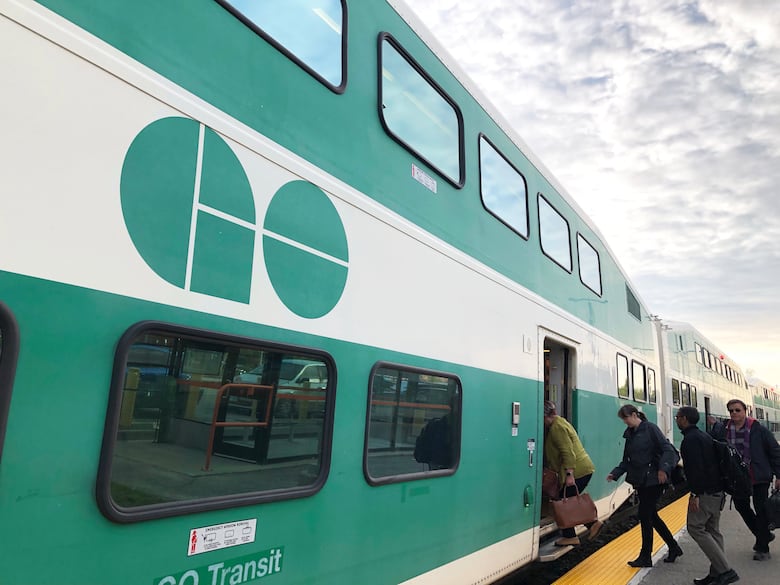Cambridge GO train service should connect riders to Toronto via Guelph: Report

Connecting GO trains between Cambridge and Guelph is a better option for riders than trying to connect to MIlton, a feasibility study has found.
The region's planning and works committee will receive a report Tuesday on phase one of a study involving the region, Cambridge, Metrolinx and the Ontario Ministry of Transportation. The study was announced in May 2018.
The last study to look at the issue was done in 2014, and it considered linking Cambridge to Milton but found "significant impediments along the Milton Line" including being unable to negotiate with CP Rail to allow for passenger service on a freight line.
The report says going through Guelph is the best option for ridership numbers and travel time and would better serve people than going through Milton.
Going to Guelph "has a higher degree of constructability and deliverability compared to the Milton GO line extension," the report said.
Forecasted daily ridership to and from Cambridge was expected to be between 850 and 1,350 riders by 2026, the report said. It's expected that would rise to between 1,200 and 1,930 by 2031 and to as many as 3,100 by 2041.
Possible station locations
The report listed five possible GO train stations in Cambridge, including the planned Pinebush ION stop, Hespeler Village, Bishop Street N. in Preston, the corner of Eagle Street N. and Speedsville Road in Preston or the Delta ION station at Hespeler Road and Dundas Street N.
There were concerns using the Pinebush ION stop as a GO train stop could lead to overlap with the planned Breslau GO station, but the report said the two stations will be different.
Breslau would offer parking while the Cambridge station would be "more oriented towards urban/transit based commuters."
The report noted the status of the to-be-built Breslau GO station, which was announced by the former Liberal government in June 2016,"is unknown at this time."
That was due to what the report called a "recent shift in Metrolinx's direction towards a market-drive approach requiring municipalities and private sector partners to lead the development of new stations or redevelopment of existing stations."
Phase 2 gets underway next month
Phase two of the study is set to begin in July and will take approximately six months to complete.
It will look specifically at the physical conditions of traintracks between Cambridge and Guelph.Track improvements, including new crossings, bridge improvements and a maintenance andstorage facility, were estimated to costup to $85 million, according to a Metrolinx report.
As well, the second phase will consider what "vehicle technology" could be used to provide service on that stretch.
Phase two would also consider how a GO train line between the two cities could be integrated with the Kitchener GO line.
The report also noted Metrolinx is currently working on a business case for two-way, all-day GO train service on the Kitchener GO line and that "is anticipated to be completed in the near future."












_(720p).jpg)


 OFFICIAL HD MUSIC VIDEO.jpg)
.jpg)



























































































